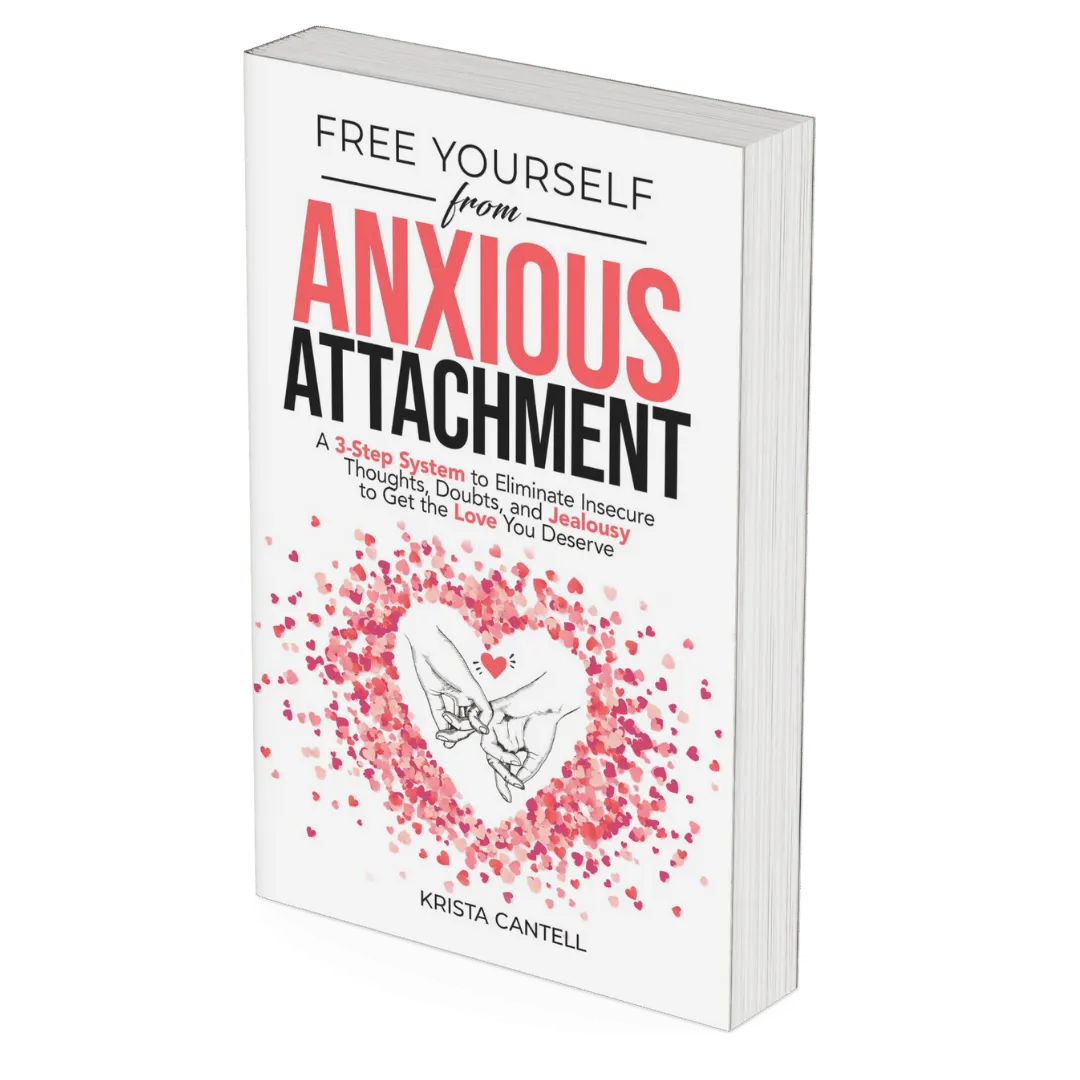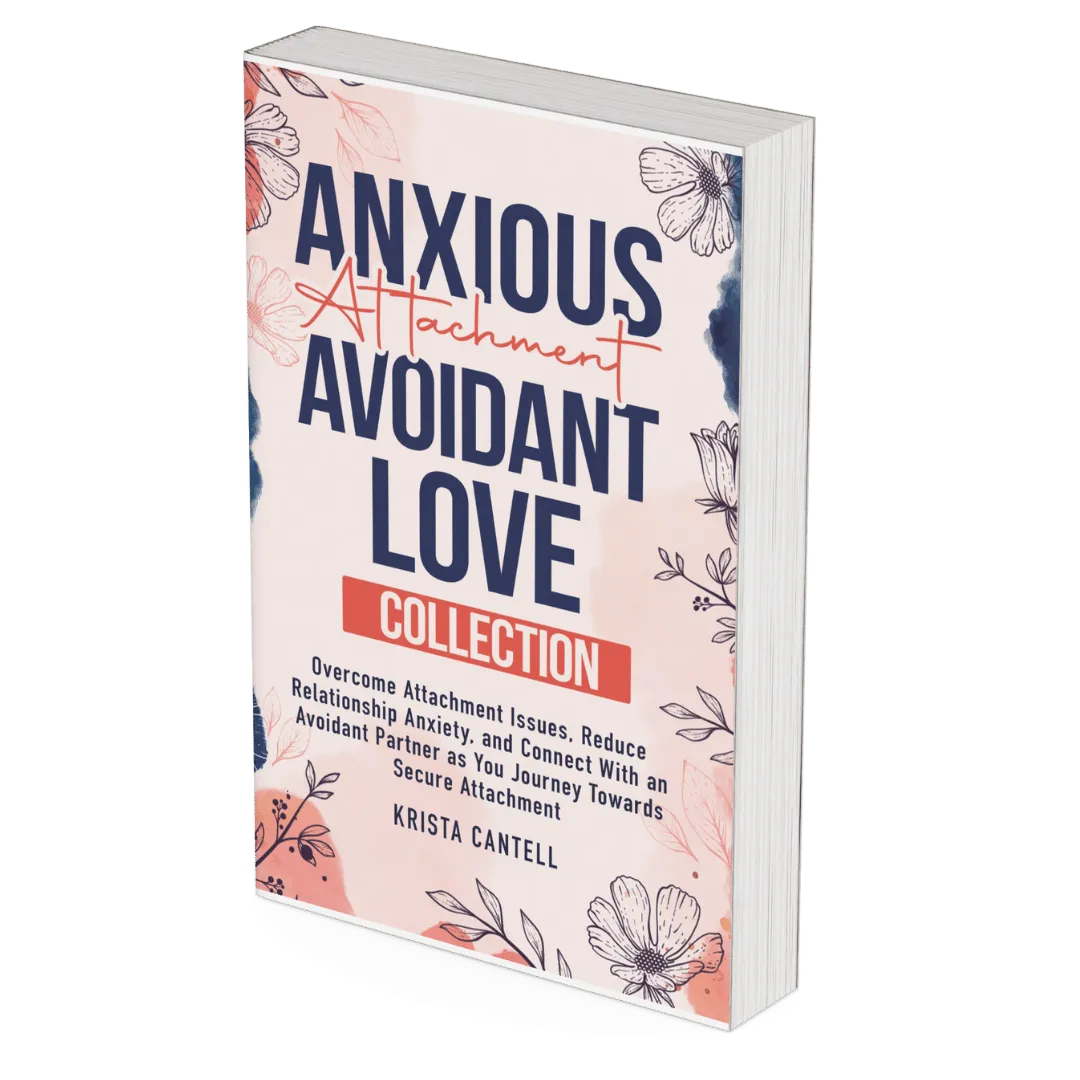Empowering Connections and Transforming Love
Attachment Theory Books for Lasting Love
Dive into our carefully curated selection of transformative books, enriching courses, and expert therapist recommendations, all designed to empower you with the knowledge and tools to build deeper, more fulfilling connections. Whether you're seeking to understand your relationship patterns, improve communication with your partner, or simply enrich your personal growth journey, Attachment Theory Books is here to light the way. Start your journey towards stronger, healthier relationships today!
FEATURED ATTACHMENT BOOKS THIS MONTH
Transform Your Love Life
Transform Your Love Life by embracing a secure attachment style with your partner. Discover the essence of enduring love through attachment theory, fostering deeper empathy, trust, and emotional connection. Our resources offer insights and practical tools to help you and your partner grow together, strengthening your bond. Whether starting anew or enriching an existing relationship, a secure attachment approach leads to a more fulfilling, loving partnership. Start your transformative journey with us and elevate the quality of your relationship.

Attachment Theory Books & Resources

Attachment Book Recommendations
Explore the transformative world of attachment theory with our handpicked book recommendations. Start your self-help journey with us, and unlock the secrets to a more fulfilling love life through the power of knowledge and self-discovery.
Connect with Therapists
Connect with the right support on your journey to healthier relationships. We offer easy access to a network of therapists specializing in attachment theory. Find the perfect match for your unique needs and start working towards a more secure, fulfilling partnership with expert guidance.

From The Attachment Theory Books Blog

Avoidant Attachment At Work
Avoidant Attachment at Work: Strategies for Success
Avoidant attachment at work is a topic that has gained increasing attention in recent years. Attachment theory, developed by John Bowlby, suggests that early childhood experiences with caregivers shape an individual's attachment style. Avoidant attachment style is characterized by a tendency to avoid close relationships and emotional intimacy.
Individuals with an avoidant attachment style may struggle in the workplace, particularly in situations that require teamwork and collaboration. They may have difficulty trusting others, expressing their emotions, and building strong relationships with colleagues. This can lead to feelings of isolation, low job satisfaction, and decreased productivity.

Understanding the impact of avoidant attachment at work is important for both employees and employers. By recognizing the signs of an avoidant attachment style, individuals can take steps to improve their communication skills and build stronger relationships with colleagues. Employers can also create a supportive work environment that encourages open communication and provides opportunities for professional development.
Understanding Avoidant Attachment
Defining Avoidant Attachment
Avoidant attachment is a type of attachment style in which an individual has difficulty forming close relationships with others. People with avoidant attachment tend to avoid emotional intimacy and may appear distant or uninterested in others. They may also have difficulty expressing their emotions and may come across as cold or aloof.
Origins and Development
According to attachment theory, avoidant attachment develops in childhood as a result of inconsistent or unresponsive caregiving. Children who have parents that are emotionally unavailable or neglectful may learn to suppress their emotions and avoid seeking comfort from others. As a result, they may develop a coping mechanism of self-reliance and independence.
Recognizing Signs of Avoidant Attachment in the Workplace
In the workplace, individuals with avoidant attachment may exhibit certain behaviors that can make it difficult to establish and maintain relationships with coworkers. They may appear distant or uninterested in socializing with others, and may avoid participating in team activities. They may also have difficulty with communication, as they may struggle to express their emotions or may avoid conflict.
It is important to note that not all individuals with avoidant attachment will exhibit these behaviors, and that there may be other factors at play in workplace relationships. However, recognizing the signs of avoidant attachment can help managers and coworkers understand and support individuals with this attachment style.
Strategies for Improving Avoidant Attachment at Work

Building Trust and Intimacy
One of the most important strategies for individuals with avoidant attachment style at work is to build trust and intimacy with their colleagues. This can be achieved by being open and honest about their thoughts and feelings, and by sharing personal experiences with others. By doing so, they can create a sense of emotional closeness and establish deeper relationships with their colleagues.
It is important for individuals with avoidant attachment style to understand that vulnerability is not a weakness, but rather a strength. By allowing themselves to be vulnerable, they can create a safe space for others to share their own vulnerabilities, which can lead to more authentic and meaningful relationships.
Effective Communication and Feedback
Effective communication and feedback are also essential for individuals with avoidant attachment style at work. They should strive to be assertive in their communication, while also being sensitive to the responses of others. This can help to avoid misunderstandings and conflicts, and can promote teamwork and collaboration.
Individuals with avoidant attachment style should also be open to receiving feedback from others, and should be willing to make changes based on that feedback. This can help to improve their relationships with colleagues, and can lead to greater success in their work.
Seeking Professional Support
Finally, individuals with avoidant attachment style may benefit from seeking professional support, such as therapy or counseling. A therapist or mental health professional can help them to understand their attachment style and work through any underlying issues that may be impacting their relationships at work.
Therapy can also provide individuals with avoidant attachment style with tools and strategies for improving their communication and building trust and intimacy with their colleagues. By investing in their mental health and well-being, individuals with avoidant attachment style can improve their relationships at work and achieve greater success in their careers.
Our Service

Attachment Books
Explore the transformative world of attachment theory with our handpicked book recommendations. Start your self-help journey with us, and unlock the secrets to a more fulfilling love life through the power of knowledge and self-discovery.
Therapist Connect
Connect with the right support on your journey to healthier relationships. We offer easy access to a network of therapists specializing in attachment theory. Find the perfect match for your unique needs and start working towards a more secure, fulfilling partnership with expert guidance.






